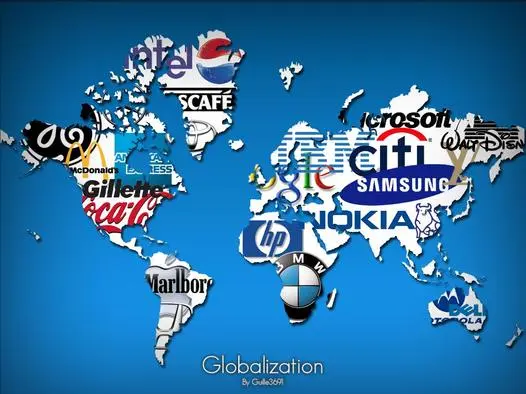
The notion of culture has always been difficult to define and with the growth of globalization, it became much harder to do it. Globalization not only touched culture in general but has brought new perspectives on seeing cultural difference. With two most common views, cultural differentialism and cultural convergence, there is cultural hybridization brought about recently by globalization. These three perspectives are fully discussed in the “Globalization and Culture: Three Paradigms” chapter of the book “Globalization and Culture: Global Mélange” (2003) by Jan Nederveen Pieterse.
Cultural differentialism is probably the oldest perspective which is often associated with the Huntington’s (1993) theory of the clash of civilizations. In general, this view sees a cultural difference as immutable and accepts differences in localization, language, and religion. The second view, cultural convergence, is also known as McDonaldization supports the idea of global cultural homogeneity characterized by different effects it caused: Americanization, westernization, Coca-colonization, and others. Finally the third perspective, hybridization, which is fundamentally different from differentialism and McDonaldization, “refers to a politics of integration without the need to give up cultural identity” (Pieterse, 2003, p. 56).
Describing cultural differentialism the author mentions “human mosaic” (p. 47) referring to cultural diversity and then provides an opposing quote: “Because a mosaic consists of fixed, discrete pieces whereas human experience, claims, and postures notwithstanding, is fluid and open-ended (Hannerz, as cited in Pieters, 2003). I found this argument interesting and thought-provoking because it enables us to go beyond our common thinking and realize that even if there are things that can be static and fixed in terms of culture, there is also something which we cannot control, our experience or claims, for instance. And being open-ended and fluid they can eventually bring changes into the stability of the local culture and trigger the penetration of cultures from outside. Thus, cultural differentialism in this perspective can be seen as the starting point of a long process of convergence or hybridization, or even both.
Pieterse, however, is not the only one who has raised discussion on the paradigms of the difference between cultures. In the article called “Religion and Culture in a Global World: a Sociological Approach” Cabello (2014) provides a summary presenting different authors’ paradigms, as they all talk about the same concepts but use different language. For instance, what Pieterse calls differentialism (differentiation), Holton calls polarization, Hanner, as peripheral corruption scenario, and Hall, as an oppositional code. Convergence is whether homogenization, global homogenization scenario and saturation scenario or dominant-hegemonic code. As for hybridization, Holton uses the same word, however, Hanner calls it as maturation scenario and Hall employs negotiated code phrase.
In conclusion, I would like to ask is there an opportunity for a certain group or community sharing similar cultural features to keep its borders and uniqueness in the current era of globalization? Is there need to do this? If yes, to what extent should this be kept and preserved? Do you agree with the Pieterse’s view on hybridization as the most preferable way of seeing a cultural difference? And, finally, what is your view?
Photo credit: http://andrewteaches.wikifoundry.com/page/Globalization+as+Hybridization+by+Jan+Nederveen+Pieterse
Reference
Martín-Cabello, A. (2014): Religion and culture in a global world: A sociological approach. Madrid: methaodos.working papers, nº2. ISBN: ISBN: 978-84-697-0316-8. Retrieved from: https://www.methaodos.org/aworkingpapers/methaodoswp/methaodoswp2.pdf
Pieterse, J. N. (2003). Globalization and culture: Three paradigms. In: J. N. Pieters (Ed.), Globalization and Culture: Global Mélange. (pp.41-58). Lanham, Maryland: Rowman & Littlefield Publishing Group, Inc.
Great final post of the semester (5/5->late->4/5)
LikeLike
There are three perspectives on global culture flows are Examined-The cultural differentialism, cultural hybridization, and cultural convergence.
Cultural diffentialism emphasizes the fact that cultures are essentially different and are only superficially affected by global flows. The interaction of cultures is deemed to contain the potential for “cotastropic collision”.
The cultural hybridization approach emphasizes the integration of local and global cultures. Therefore, globalization is considered to be a creative process which gives rise to hybrid entities that are not reducible to either the globalization or the interpenetration of the global and local resulting in unique outcomes in different geopolitic areas. Another key concept is Arjun Appadurais “scapes” (global flow involving people, technology, finance, political images, and media) and the disjunctures between them, which lead to the creation of cultural hybrids.
The cultural convergence approach stresses homogeneity introduced by globalization. Cultures are deemed to be radically altered by strong flows.
McDonaldization involves the global spread of rational systems, based on the principles of fast-food, restaurants, such as efficiency, calculability, predictability, and control. This process is extended to other businesses, sectors and geographical areas. Globalization (in contrast to globalization) is a process where in nation’s, corporation, etc.impose themselves on geographic areas in order to gain profits, power, and so on.
LikeLike